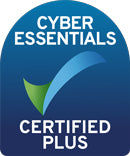Contraceptive pill and acne

When seeking treatment for acne, some women may be given the option of the combined contraceptive pill, or birth control pills as they are sometimes known, to help treat their acne. We’re going to take a look at why the combined contraceptive pill is an option for acne treatment and its possible advantages.
Understanding hormonal acne
Acne occurs when hair follicles in the skin become blocked with oil and dead skin cells. The glands attached to the hair follicles, known as the sebaceous glands, normally produce an oily substance called sebum. Sebum is used by the body to keep the skin and hair hydrated. If you have acne, the sebaceous glands are creating too much sebum and this causes blockages in the hair follicles.
What is hormonal acne?
This build up of sebum is often caused by changing hormonal levels. This is where the term hormonal acne comes from.
Increasing levels of testosterone in puberty are thought to cause acne amongst teenagers and young adults. The sebaceous glands are particularly sensitive to testosterone and seem to produce more sebum when testosterone levels are higher, causing blockages in the hair follicles.
Changing hormone levels in women are also thought to cause flare-ups of acne. Some women experience acne before their period or during the first three months of pregnancy. Polycystic ovary syndrome is a common condition among women which causes high levels of ‘male’ hormones, androgens, and can cause oily skin and acne.
How is hormonal acne treated?
If your acne is mild you might be able to treat your acne with the over-the-counter face washes, gels or creams. This will typically contain benzoyl peroxide or salicylic acid.
If your acne is moderate to severe you may, if suitable, be able to get a prescription medication to treat your acne. This may be topical gels and creams, oral antibiotics or for women, the combined contraceptive pill. You may also be prescribed a combination of these treatments.
The combined contraceptive pill is prescribed as it can help balance hormone levels, avoiding flare-ups caused by hormonal changes.
Which contraceptive pill is best for acne?
Co-cyprindiol
Co-cyprindiol, the generic form of the treatment Dianette, is a combined contraceptive pill which is licensed for use in cases of severe acne, rather than as a contraceptive. It is often prescribed to women who have not seen an improvement in their acne when using antibiotics. Co-cyprindiol helps to block the hormones that cause a build-up of sebum in the hair follicles which prevents acne from forming.
Co-cyprindiol is the generic name of the treatment, it is often known by its branded versions Dianette or Clairette.
Yasmin/Lucette
Yasmin, is also sometimes prescribed to treat acne, they work like Co-cyprindiol to prevent the build up of sebum that so often creates acne.
How quickly can the pill clear acne?
When using a combined pill, it may take up to a year before the full benefits for your acne are seen. For Co-cyprindiol in particular, you may need to take this for up to six months to notice a significant improvement in your acne.
Taking Co-cyprindiol may slightly increase your risk of having a blood clot, this is known as thrombosis. It’s been shown that taking Co-cyprindiol slightly increases your risk of cervical cancer, although it is not known if this is due to having sex without a condom, rather than Co-cyprindiol. All women should have regular smear tests. Co-cyprindiol or other oral contraceptives, slightly increase your risk of breast cancer. This risk goes up the longer you take Co-cyprindiol, but then returns to normal levels after 10 years of not taking it.
Can birth control make hormonal acne worse?
Progestogen-only pill
It is thought that the progestogen-only pill or contraceptive implant can make acne worse. The progestogen-only pill, or mini pill as it is sometimes known, can cause the levels of the ‘male hormones’ to fluctuate. This can then cause oily skin, resulting in acne.
Other contraceptive options
While the combined pill works for many women, it might not be the contraceptive solution for you. The progestogen-only pill, implant, injection, hormonal coil, non-hormonal coil (commonly known as the copper coil), vaginal ring (NuvaRing), patch (Evra), condoms and caps or diaphragms are options to consider.
Visit our contraception clinic to find out more or read our guide to contraception options.
Other treatments for acne
If you don’t think the combined contraceptive pill is for you, there are a wide range of options available for treating acne. These treatments include topical retinoids, topical antibiotics, azelaic acid and antibiotic tablets.
References
https://www2.hse.ie/conditions/acne/
https://www2.hse.ie/conditions/acne/treatment/



